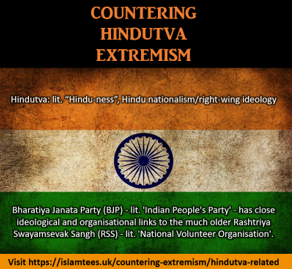Ibn ‘Arabee held that all the pagans and idol-worshippers were upon the truth since Allaah is in his view everything. Therefore whoever worshipped an idol, or worshipped a stone, or a tree, or a human, or a star, then he has worshipped Allaah. He says about this:
“So the person with complete understanding is he who sees every object of worship to be a manifestation of the truth contained therein, for which it is worshipped. Therefore they all call it a god, along with its particular name, whether it is a rock, or a tree, or an animal, or a person, or a star, or an angel.”[Al-Fusoos (1/195), al-Wakeel: Hadhihi Hiyas-Soofiyyah (p.38)]
So Ibn ‘Arabee declares their idol-worship to be correct since everything which they worship is only the Lord appearing in the form of a human, a tree or a stone.
O brothers, if the Sabians were unbelievers because they worshipped the stars, and the Jews were unbelievers because they worshipped the calf, and the Christians were unbelievers because they worshipped ‘Eesaa, and the Quraysh were unbelievers before Islaam because they worshipped idols… then how can the one who calls to the worship of all these things not be an unbeliever? [See Hadhihi Hiyas-Soofiyyah (p.38)].
Ibn ‘Arabee even admits his belief that all religions are one and that his heart is ready to embrace every sect and religion. He says in his book Dhakhaairul A’laaq Sharh Tarjumaanil-Ashwaaq:
“Before today I used to criticize my companion, if my religion was not the one which he followed. But my heart changed to accept every image, so pastures for the carefree lovers and convents for the monks. A house of idols and the idol house in Taa’if, the tablets of the Torah and the mushaf of the Qur’aan. I follow the religion of love wherever it takes me, so all religion is my religion and my belief.”[Al-Wakeel: Hadhihi Hiyas-Soofiyyah (p.93) and he attributes it to p.93 of Dhakhaairul A’laaq].
Furthermore Ibn ‘Arabee warned his followers from believing in one particular religion and disbelieving in all others. He said in al-Fusoos:
“Beware of restricting yourself to one particular creed and disbelieving in everything else, so that great good would be missed by you, indeed you would miss attainment of knowledge of the affair in the form he is following. Rather be ready to accept all forms of belief. This is because Allaah is higher and greater than to be comprehended by one belief to the exclusion of others. Rather all are correct, and everyone who is correct receives reward, and everyone who is rewarded is fortunate, and everyone who is fortunate is one with whom He is pleased.”[Hadhihi Hiyas-Soofiyyah (p.94) and he attributes it to al-Fusoos (p.191)]
Therefore Ibn ‘Arabee declares that the Pharaoh in the time of Moosa was saved and he says commenting on the saying of Allaah, the Most High:
“A comfort for the eye, for me and for you.” [al-Qasas 28:9]
“So through it came delight to her eye, i.e. that of the wife of Pharaoh, because of the perfection that she was granted, and the pleasure for the eye of Pharaoh was because of the faith (eemaan) which Allaah gave to him when he drowned, so He took his soul which was pure and purified containing no impurity.”
[Hadhihi Hiyas-Soofiyyah (p.95) and he attributes it to al-Fusoos (p.201)]
He openly declares that Pharaoh was a Believer, contrary to the text of the Noble Qur’aan in many Aayaat. From them is the saying of Allaah, the Most High:
“So Allaah seized him with punishment for his last and his first transgression.”[an-Naazi’aat 79:25]
Also ‘Abdul-Kareem al-Jeelee who died in the year 830H says, explaining his belief that all religions are one in his book al-Insaanul Kaamil (The Perfect Man):
“So I surrender myself to whatever my desires surrender me to, how can I dispute with the judgement of one beloved. Sometimes you may see me bowing in the mosques and other times I will be found worshipping in churches. If in the judgment of the Sharee’ah I am a sinner yet with regard to the knowledge of reality I am obedient.”
[Hadhihi Hiyas-Soofiyyah (p.96) and he attributes it to al-Fusoos (1/69)]
Therefore according to al-Jeelee there is no difference between the mosque and the church, and even though he was sinful and disobedient to Allaah’s orders according to the outer and apparent Sharee’ah, as he claimed, but he was inwardly obedient to Allaah since he was obedient to Allaah’s will.
Also listen to Ibnul-Faarid’s claim that Allaah is actually His creation, and High is Allaah above that. He said:
“I proceed forward to the true reality, and mankind were behind me, wherever I turned there it was. It was no wonder that the people prayed until My heart became settled and it is the direction of Prayer and aspiration for me. For it are all my Prayers, which I offer on the place of standing, and I testify about it that it prayed to me. And all else prayed to me and My Prayer was not to anyone but me in every rak’ah.”
Ibnul-Faarid also composed a complete poem in which he addresses Allaah in feminine form in like manner. However, O brothers, again space does not permit us to bring other examples of the belief of most of the Sufis in unity of all religions, from the words of their foremost leaders such as Ibnul-Faarid, al-Jeelee, Ibn ‘Ajeebah, Hasan Ridwaan, Ibn-Basheesh and ad-Dimardaash and others, and whoever wishes to see these things then he may refer to the book Haadhi Hiyas-Soofiyyah (This is Sufism) of ‘Abdur-Rahmaan al-Wakeel rahimahullaah.
Source: The Reality of Sufism in Light of the Qur’aan & Sunnah, Shaykh Muhammad Ibn Rabee Ibn Haadee Al-Madkhalee, 1995, Translated by Aboo Talhah Daawood Ibn Ronald Burbank (rahimahullah), pp. 30-33.















































































